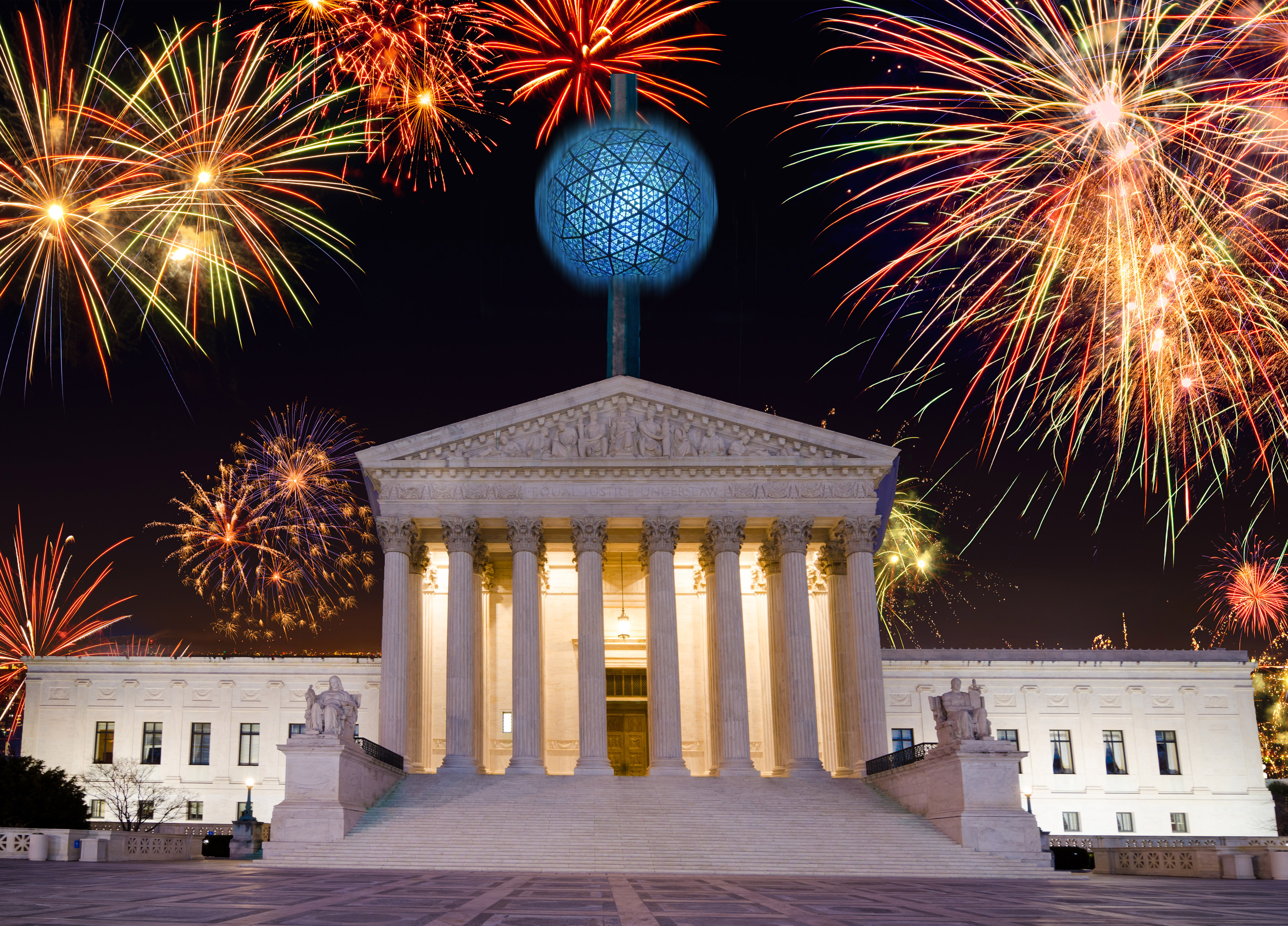Counting Down the Term's Big CasesNow that we've put 2017 to bed, it's time to focus on 2018 which promises to be just as packed with contentious issues and top-flight Supreme Court advocates at the podium.
The list may grow (see above), but right now we're keeping close watch on five cases that the justices have agreed to hear and are likely to make news headlines.
5. Husted v. A. Philip Randolph Institute
Last year was already
a huge year for voting rights as the high court
took up the question in a Wisconsin case about when partisan gerrymanders violate the Constitution. This month the justices turn to another side of the voting rights issue in
Husted, a challenge to Ohio's system of purging its voter rolls.
Former
Jenner & Block partner
Paul Smith, now with the
Campaign Legal Center, represents the challengers who argue Ohio violates the National Voter Registration Act by using a person's failure to voter over a two-year period to trigger removal from the rolls. Smith, a former clerk to Justice Lewis Powell Jr., will face Ohio Solicitor General Eric Smith, a former Justice Anthony Kennedy clerk. Smith argued the partisan gerrymander challenge to Wisconsin's redistricting plan in October.
4. Janus v. AFSCME
February offers the justices
a second shot at so-called fair share fees paid by nonunion members to unions that represent them in collective bargaining. The high court deadlocked in 2016 in a case raising the same claim that the fees violate the First Amendment. In
Janus, set for Feb. 26 arguments,
William Messenger of the
National Right to Work Foundation will argue for Janus.
David Frederick of Kellogg, Hansen, Todd, Figel & Frederick, who represented the union in the 2016 case, returns on behalf of AFSCME.
3. U.S. v. MicrosoftSet for argument Feb. 27 is a
showdown between the United States and Microsoft Corp. over the government's search and seizure warrant for data stored in Microsoft's data center in Dublin, Ireland. The U.S. Court of Appeals for the Second Circuit held that the Stored Communications Act does not authorize courts to issue warrants for customer email content stored on foreign servers. E.
Joshua Rosenkranz of Orrick, Herrington & Sutcliffe represents Microsoft.
2. National Institute of Family and Life Advocates v. Becerra
Abortion is back on the docket in a First Amendment challenge to California's law requiring certain disclosures by so-called crisis pregnancy centers. Alliance Defending Freedom, which brought to the court
Masterpiece Cakeshop v. Colorado Civil Rights Commission this term, is defending the National Institute of Family and Life Advocates. ADF's
David Cortman is counsel of record.
California Deputy Solicitor General Joshua Klein, a former clerk to Justice Sandra Day O'Connor, is counsel for the state.
1. Benisek v. LamoneAnd last but not least, the justices will hear a second partisan gerrymandering case this term. The appeal, not yet scheduled for argument, challenges a single congressional district in Maryland. The justices got a glimpse of the case in 2015 when the challenge triggered a dispute over the role of three-judge district courts in apportionment cases.
The two lawyers who argued the 2015 case are back in
Benisek:
Mayer Brown's Michael Kimberly, who won in 2015, represents the
Benisek challengers, and
Maryland Solicitor General Steven Sullivan is counsel for the state.

Comments
Post a Comment